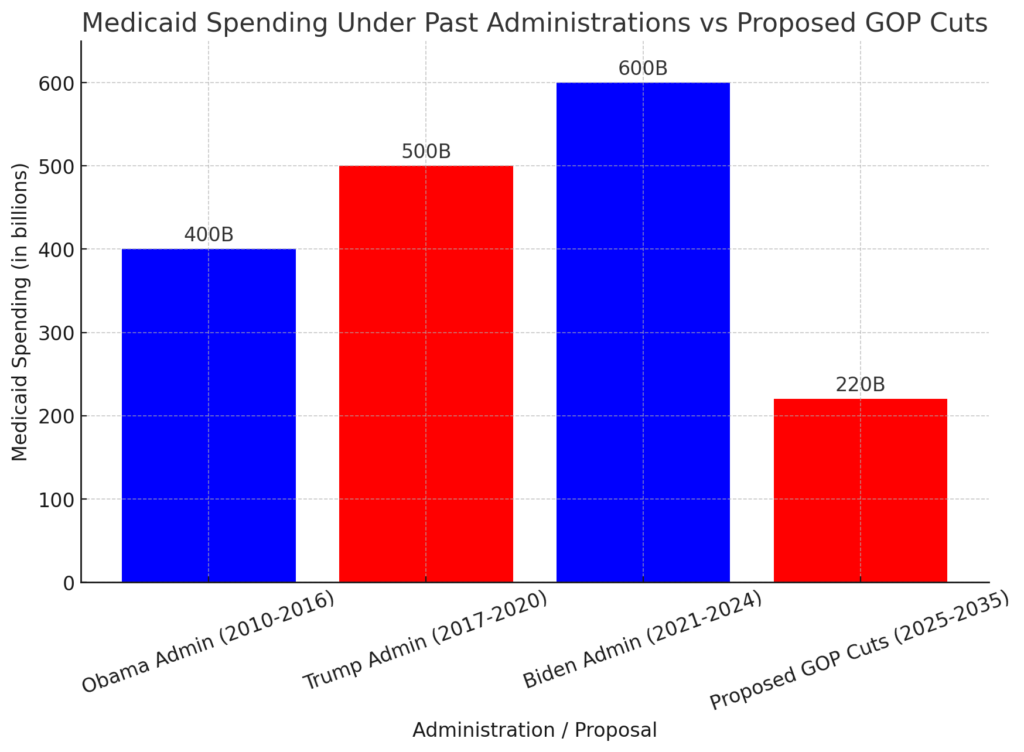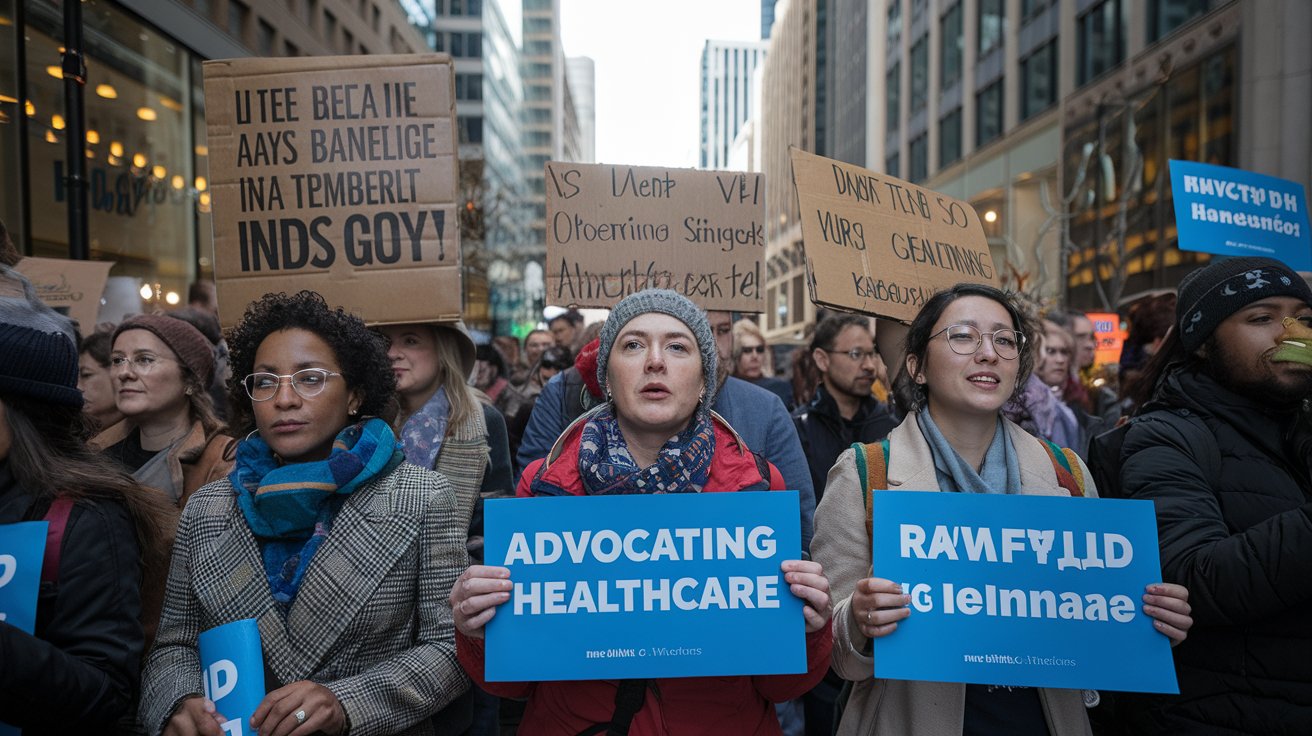The political landscape is shifting as Democrats are poised for a House comeback amid GOP’s Medicaid cut proposals. With House Republicans advancing a budget resolution that includes an estimated $880 billion in Medicaid cuts over the next decade, voter sentiment is changing. The proposed reductions have sparked outrage, particularly in states that have expanded Medicaid through ballot initiatives. As Democrats seize on the issue to regain House control, this battle could define the next election cycle.
GOP’s Medicaid Cut Proposal Sparks Backlash
The Republican-led House budget plan, aiming to slash Medicaid funding, has drawn significant criticism from healthcare advocates, state officials, and voters. The proposal would affect millions of Americans, particularly those in low-income brackets and individuals with disabilities who rely on Medicaid for essential healthcare services.
According to reports, GOP leaders argue that these cuts are necessary to curb government spending and reduce the federal deficit. However, opposition voices highlight that such drastic reductions could leave millions uninsured and force states to limit or eliminate coverage for critical medical services. This issue has led to increased mobilization among advocacy groups and voters in Republican-leaning states such as South Dakota, Idaho, Nebraska, and Missouri.
Democrats Leverage Medicaid Cuts to Build Momentum
Recognizing the widespread concern over the proposed cuts, Democrats are capitalizing on this issue to gain voter support in the upcoming elections. The House Majority PAC has already launched targeted TV and digital ad campaigns highlighting the negative impact of the GOP’s budget resolution. These ads focus on the potential loss of healthcare access for vulnerable populations, a strategy that has proven effective in past election cycles.
A key factor in this debate is the Republican Party’s internal division. Moderate GOP lawmakers from swing districts have expressed reservations about deep Medicaid cuts, fearing electoral backlash. Meanwhile, conservative members are pushing for even deeper reductions, creating a rift within the party.
Voter Sentiment Shifts in Key Battlegrounds

Polling data suggests that public sentiment on Medicaid is evolving. While Democrats have struggled with approval ratings in recent years, the prospect of widespread healthcare cuts has softened voter skepticism. Many middle-class and low-income voters who rely on Medicaid are reconsidering their support for Republican candidates, particularly in districts where past elections have been decided by narrow margins.
Additionally, independent voters—a crucial demographic in swing states—have shown increased concern over the GOP’s healthcare policies. The fear of losing coverage or facing higher medical costs has led many to reconsider their political allegiances.
Republican Leaders Face Tough Choices
House Speaker Mike Johnson and GOP leadership face a difficult balancing act. While some conservative members demand stricter cuts, moderates warn that such measures could cost them seats in the 2026 midterms. The parallels to the 2018 elections, when Democrats flipped over 40 House seats largely due to healthcare issues, are becoming increasingly apparent.
In states like Illinois, where Governor JB Pritzker has accused the Trump administration of withholding nearly $1.9 billion in federal funds, the stakes are even higher. Pritzker warned that Medicaid cuts would put hundreds of thousands of Illinoisans at risk, intensifying the debate.
What This Means for the 2026 Elections
With control of the House on the line, the Medicaid debate could be a defining issue in the next election cycle. Democrats are positioning themselves as protectors of healthcare access, while Republicans struggle to present a unified stance on budget reform. The upcoming months will be critical as both parties refine their strategies and attempt to sway voter sentiment.
As the battle over Medicaid funding intensifies, it remains to be seen how this issue will shape the future of American healthcare and the balance of power in Congress.
Conclusion
The proposed Medicaid cuts have ignited a political firestorm, with Democrats leveraging the issue to bolster their comeback bid in the House. The deep divisions within the GOP and shifting voter sentiment suggest that healthcare will remain a pivotal factor in upcoming elections. If history is any indicator, attempts to scale back Medicaid could backfire politically, as seen in the 2018 midterms.
With the 2026 elections approaching, the Republican leadership faces critical choices that will determine their party’s electoral fate. Meanwhile, Democrats are poised to capitalize on voter concerns, potentially reshaping the political landscape in their favor. The battle over Medicaid cuts is far from over—and its outcome will have lasting consequences for millions of Americans.





